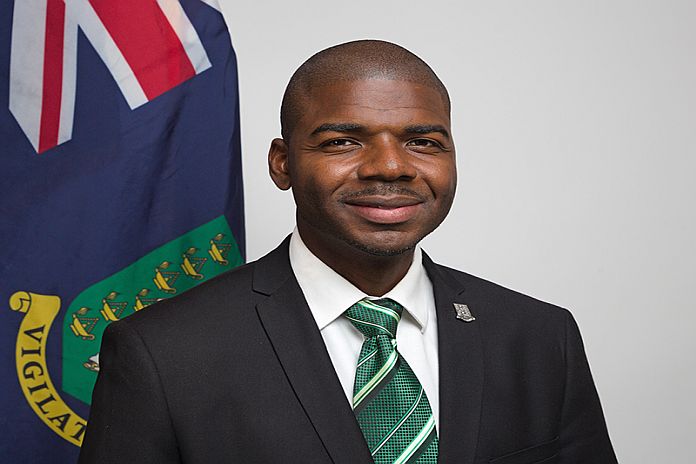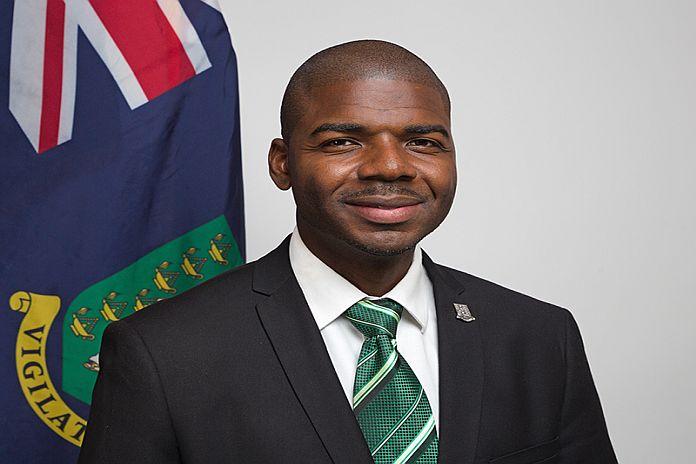The future of tourism – Caribbean News Global

I would like to first thank UNDP for the very generous invitation to participate in this timely regional policy dialogue as we consider how to best accelerate the recovery of the tourism sector from the COVID-19 pandemic, with particular emphasis on MSMEs.
By Dr Natalio Wheatley
In response to your questions madam moderator, let me begin by saying that the British Virgin Islands (BVI) is open for business and is a safe destination for travellers. US News and World Report recently ranked the BVI number two in terms of the best places to visit in the Caribbean. Our COVID-19 cases currently stand at three and have largely remained in single digits due to our robust health and entry protocols. I start here because this is what currently underpins confidence in our destination. There is very low risk of infection.
The BVI tourism model is actually one that is mixed. Our tourism product has marine, cruise and overnight land-based components. This mix has allowed us over the years to expand economic inclusion and local participation in the tourism sector, which accounted for the largest share of employment in 2019.
For example, the yachting industry is serviced by retail and wholesale businesses and marinas; the cruise sector is serviced by tour operators and the taxi industry; and overnight visitors are served by local restaurants and shops.
It is true that we have a specific niche in sailing and attract visitors whose spend is relatively high. The current resiliency of this segment of the market has a lot to do with the duration of time visitors spend in the BVI for sailing activities. When an individual, family or group visits for a sailing or fishing holiday, they tend to stay for a week or more to maximise the experience. In the current environment, longer stays are more conducive for visitors, especially when you consider quarantine requirements. Of course, if you are vaccinated, then the quarantine window is just two days, pending a negative PCR test. We are also preparing to remove the quarantine requirement for vaccinated persons, which will be announced shortly.
Cruise tourism is also a critical part of our tourism mix. Our taxi drivers and tour operators depend on demand from cruise passengers for tours. Our local shops and restaurants benefit from their spending. Cruise tourism is desirable at a level that is environmentally and socially sustainable over the long term. We are currently studying this issue to find the right balance, but cruise tourism will remain a feature of our destination. The first cruise passengers since we reopened the sea borders are scheduled to arrive next week.
As the BVI presses ahead with the safe and sustainable recovery of the tourism sector, we want to strengthen the economic linkages between tourism and the specific sectors where there can be synergies that benefit MSMEs.
Among other things, we want to see a stronger linkage between the Agriculture and Fisheries sectors and the hospitality industry. This will not only support and sustain the livelihoods of our local farmers and fisherman, but it will also add to our authenticity as a destination. We have already taken initial steps to increase agricultural and fisheries output and will continue to promote local inputs on the menus of restaurants and hotels.
In the yachting industry, we want to encourage more spinoff opportunities for MSMEs in terms of provisioning (i.e. food, drink, supplies) for yacht charters, as well as the cleaning, maintenance and servicing of vessels. MSMEs can do some of this work. Toward this end, we want to increase training and support for workers and business owners in the relevant areas. We are already seeing the positive results of our initial efforts with the recent graduation of a cohort of students from a marine training programme at the H. Lavity Stoutt Community College.
On our beach fronts, such as Brandywine Bay, our intention is to lease spaces for vendors to offer services for food, drink and leisure. Longer-term, we will develop additional tourism corridors across our various islands in which we will invite members of the local communities to be shareholders in the economic development projects that will broaden the base of our tourism infrastructure.
Our existing tourism corridors, such as Cane Garden on Tortola, and those on the Sister Islands, will continue to be at the heart of the tourism sector’s recovery. The many MSMEs that service these areas are poised for the expected increase in visitors.
We also see a major opportunity in the creative industries to boost cultural tourism. The BVI has untapped potential in terms of displaying and promoting our cultural heritage and the arts. Opportunities are ripe here for MSMEs and budding entrepreneurs. To support this, we have designated November as Tourism and Culture month, which features cultural festivals and events. We also plan to establish additional festivals throughout the year and will be working to create additional platforms for the display of our cultural heritage and the arts where it would be most beneficial to artisans, performers, vendors and MSMEs.
While we are very optimistic about the future prospects for tourism, we have not forgotten about the negative impact of the pandemic on already vulnerable groups such as women. Women make up the majority of the workforce in the tourism sector and bore the brunt of layoffs triggered by the pandemic. There was also a disproportionate impact on migrant workers. The unemployment situation of youth is particularly concerning, especially among young men.
The government has done the best we can to provide financial and social assistance to those in need through our unemployment insurance scheme, public assistance programmes and economic stimulus package.
While things remain difficult for many, we are very confident that as the tourism sector recovers and demand picks up, that many of those economically displaced will be called back to work where their skills are needed to support businesses. In the meantime, we will continue making efforts to provide people with training to succeed in the tourism industry and those sectors where synergies can be found, including agriculture, fisheries and the cultural industries. As mentioned earlier, we are already seeing the positive results of our initial efforts with the tourism training certification of a cohort of students at the H. Lavity Stoutt Community College.
I would like to wrap up my intervention by saying that I am hopeful about the future of tourism. The steadily increasing pace of vaccinations in source markets in North America and Europe is creating a more conducive environment for international travel. Likewise, as the Caribbean’s own rate of vaccination increases, we will be better positioned to receive visitors. Let us forge ahead.
Thank you once again to UNDP for the inclusion of the BVI in the future-tourism project and for the previous round of support to our MSMEs in 2020 during the height of the pandemic.
Source: caribbeannewsglobal.com



